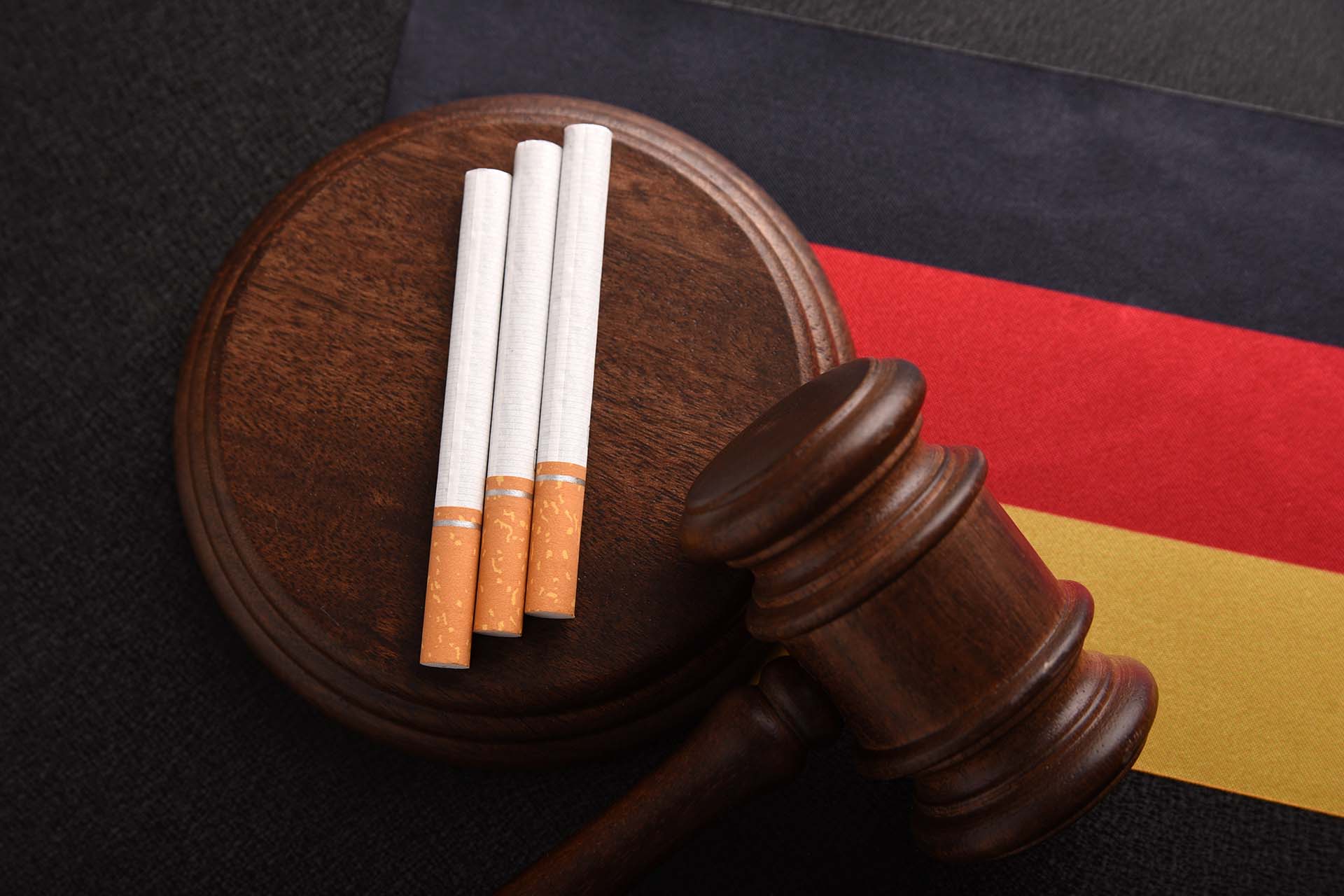Back in 2011, the German Bundestag made a sudden amendment to the Tobacco Tax Act in an effort to modernise it. This resulted in an increase in tax for tobacco-containing products. But as of the 1st of July 2022, E-Cigarettes and E-Liquids, even those that do not contain nicotine, will also be subject to tobacco taxation.
The reform of the Tobacco Tax Act
On the 11th of June 2021, the German Bundestag made amendments to their Tobacco Tax Act with the Tobacco Tax Modernisation Act (TabStMoG). Originally it had been put forward that April but after various meetings, the Finance Committee further tightened the planned changes. The changes were aimed at increasing the tobacco tax for conventional cigarettes, cigars, cigarillos and fine-cut tobacco, as well as heated tobacco and water pipe tobacco.
All of this, of course, is in aid of trying to meet the EU’s demand for becoming smoke-free. Therefore, as of 2022, smokers will have to pay more rising to 10 cents per pack, with a further 10 cents being added each year until 2025 and 2026 when it will increase to 15 cents per pack.
The new update to include E-Cigarettes & nicotine-free products
The new changes also dictated the future of E-Cigarettes in Germany. At the time of the amendments, it was mentioned that E-Cigarettes and nicotine-free products would be included in the future. And as of 1st July 2022, these will now constitute as a taxable item.
These changes have resulted due to an assumption by the German government, that vaping products are equally as harmful to health as tobacco products. Despite the expert advice and countless pieces of evidence that suggest the opposite, they hope this new tax will reduce the usage of vaping devices.
Taxation is calculated on a millilitre basis based on the volume of the substance. Products with high ml counts such as shortfills are likely to become much more expensive. As of July 2022, the tax rate is 16 cents per millilitre, which will then rise to 32 cents per millilitre from 2026.
Possible consequences of the taxation
It’s no surprise that these changes are going to impact businesses and consumers. Wildly criticised for its demonising approach to vaping, there are obvious concerns that it may drive fewer people to quit smoking. There’s also the possibility it may push consumers to purchase cheaper products from other places in the EU. Even more questionably, the inclusion of nicotine-free products in this agenda means that shortfills no longer are likely to be a popular choice for vapers looking to get more for their money.
For businesses, investing in smaller bottle sizes is more likely to become the go-to in an effort to keep prices low for consumers. Rather than the typical 10ml bottles, smaller sizes like 5ml are likely to become more popular. The new taxation is likely to impact the pricing of products which quickly becomes a battle of profit vs sellability. Will consumers pay a higher price point for the products they enjoy? Especially if they can buy them elsewhere, cheaper.
Helping businesses establish updated product ranges to suit market changes and regulations is a speciality of Xyfil. We constantly keep up to date on the latest from the vaping industry to ensure that we can cater to global needs.
Here at Xyfil, we offer a wide variety of E-Liquid types and sizes including small bottle concentrates. Already we are working with brands who wish to keep their products in Germany, to update their products and packaging to reflect the new regulations. If you want to take your E-Liquid products to Germany, get in contact with us today.

